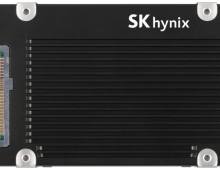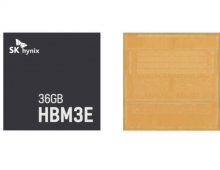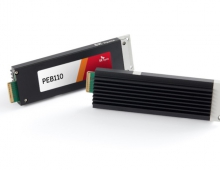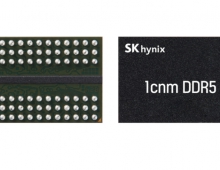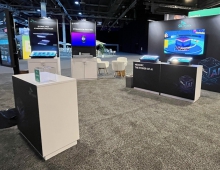
SK hynix Profit Dips on Weak Memory Demand
SK hynix Inc. said Thursday its net profit for the third quarter dipped to the lowest level in more than three years on weak memory chip prices and global demand.
The net profit for the world's No. 2 memory chip producer plunged 89 percent to 495.5 billion won (US$423.1 billion) in the July-September period from a year ago, the company said.
Its third-quarter sales plunged 40 percent on-year to 6.8 trillion won, and operating profit plummeted 93 percent to 472.6 billion won, the lowest since the second quarter of 2016.
The operating margin stood at 6.9 percent in the third quarter, far below the 56.7 percent from a year ago.
SK hynix said its dismal earnings were due to weaker-than-expected demand recovery and a steep fall in memory prices amid trade tension between the United States and China.
The revenue in the third quarter increased by 6 percent on-quarter as demand began to pick up. However, the operating profit fell by 26 percent from three months earlier due to a steep drop in DRAM prices.
"DRAM prices remained weak during the quarter, leading to a 16 percent drop in the average selling price, with the decline smaller than the previous quarter," SK hynix said.
Shipments of DRAM increased 23 percent in the third quarter from a quarter earlier on new smartphones and expanded purchases by data centers, but the average selling price fell 16 percent over the period due to a high level of inventory, the company said.
As for NAND flash, shipments slipped 1 percent on-quarter due to a high base effect, but the average selling price picked up 4 percent, the company noted.
The company said it expected prices of both DRAM and NAND flash to recover next year, hoping for a sales boost from launches of 5G smartphones equipped with high-density chips.
The chipmaker said it has been cutting output of major memory products and focusing on high-density products and image sensors to improve profitability.
"As a result, both DRAM and NAND Flash capacity will decrease next year compared with this year, and the amount of investment is expected to shrink considerably next year as well," the firm said.
The company said the capital expenditure next year will be "considerably lower" than this year to respond to market conditions, without elaborating on the amount.

